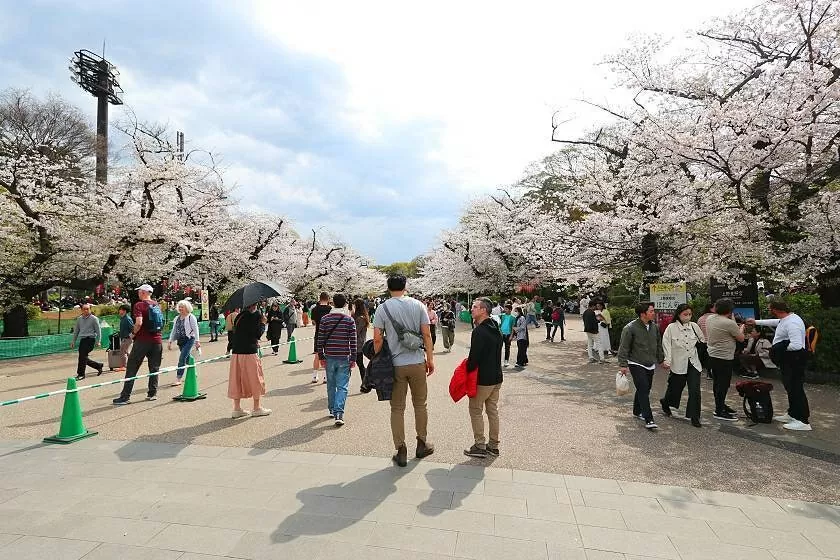
What Asia can learn from Europe’s overtourism crisis — Before it’s too late
Latest
Here in Asia, international travel is roaring back. In Japan, international arrivals reached a record 3.9 million in April 2025 alone, exceeding pre-COVID highs. But alongside the recovery, challenges are mounting. In places like Kyoto and Mt. Fuji, overcrowding, strained infrastructure and rising frustration among residents are becoming harder to ignore.
 |
| Japan recorded a historic 3.9 million international arrivals in April 2025, marking a new high that exceeds pre-pandemic levels. (Photo: japan-guide) |
Meanwhile Southeast Asian destinations like Thailand, Vietnam and Indonesia are once again drawing millions of travellers seeking cultural immersion and coastal escapes. For many of our economies, this rebound is not just welcome, it’s essential. Tourism is one of the world’s most important industries, contributing 10.9 trillion USD to global GDP and supporting 1 in 10 jobs globally.
But there’s also a risk: that we prioritise volume over value, and repeat the same mistakes seen across parts of Europe.
Overtourism is not simply about crowding
Overtourism is about infrastructure under strain, short-term rentals driving up housing prices, fragile ecosystems pushed to the edge, and locals feeling increasingly disconnected from the places they call home. It’s about who tourism serves and who it forgets.
There’s a fundamental truth that not all tourism is created equal. After two decades working in the travel industry, I’ve come to believe that the real question isn’t whether we should travel, but how we can travel better. Better for the people who live in the places we visit. Better for the environment. Better for the travellers themselves.
Some of the most pressing challenges stem from the ways tourism has traditionally been structured. The all-inclusive resort, the big bus tour, the whirlwind tour of bucket-list destinations. These models were largely built for volume and profit, not for positive impact.
There’s also the question of who benefits. In many places, a significant proportion of tourism revenue doesn’t stay in the country. Studies have shown that in destinations like Bali, more than half of tourist spending can "leak" out of the economy due to foreign ownership. In the Caribbean, it can be as high as 80%. That’s a staggering loss for communities who bear the cost of hosting tourists every day.
Some governments and cities are already leading the way. Penang in Malaysia has taken steps to reduce short-term rentals and inconvenience to locals. Others are investing in campaigns to educate tourists on respectful behaviour, basic things like water usage, noise levels, and littering – so that locals and visitors can coexist more harmoniously.
 |
| Natalie Kidd, Managing Director, Asia at Intrepid Travel. |
Then there’s behaviour
Travel is a privilege. The relationship between a tourist and a host can and should be a two-way exchange of culture, values, ideas and meaningful connection, not one of disdain. So when tourists ignore local customs, disrespect sacred sites or treat destinations as disposable playgrounds, it’s understandable that residents are fed up.
As an industry, we also have a responsibility to do better. We need to work with local communities to develop tourism in a way that serves their needs and aspirations. We need to promote lesser-known destinations, pay fair wages, support locally owned businesses and be mindful of our footprint.
The way forward is progress not perfection
It’s about making intentional choices shifting the way we travel, the way we build experiences, and who we design them for.
I’m not over tourism. But I am over tourism that ignores how many visitors a destination can comfortably welcome. I am over extractive models of tourism that benefit a few shareholders while inconveniencing, ignoring or even impoverishing others.
I am not over tourism that reduces inequalities or brings people together during divisive times.
I’m not over tourism that pays fair wages, lifts communities up, protects culture and nature and creates benefits for all stakeholders.
And, I’m certainly not over the endless potential tourism has to create positive change through the joy of travel.
To keep that promise alive, we must change how we move through the world. Let’s stop chasing the same overcrowded landmarks. Let’s choose slower, more meaningful travel. Let’s be good guests.
Because if tourism is to survive and thrive it has to work for the many, not the few.













